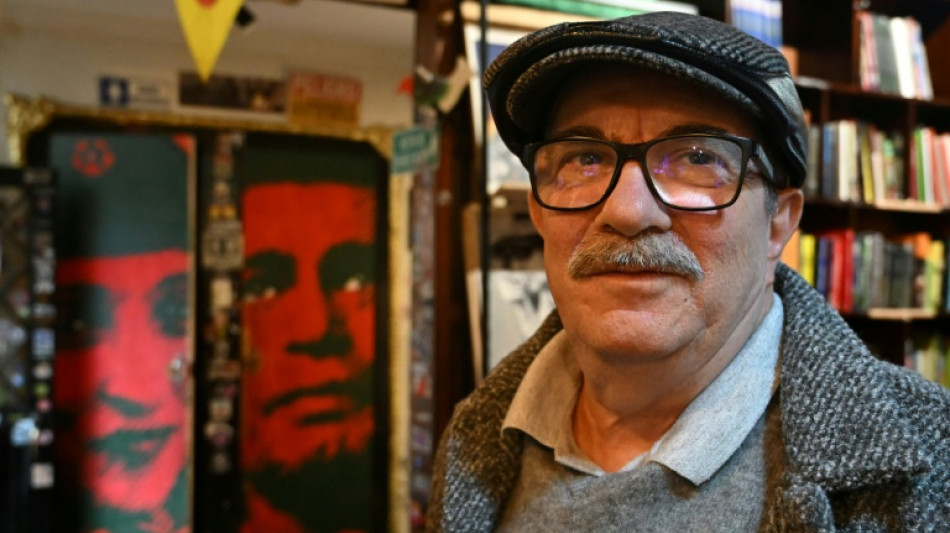
Modern-day Colombian guerrillas are mere druglords: ex-FARC commander

Colombian guerrilla fighters today are no more than drug lords given too much leeway by the leftist government, infamous former rebel commander Rodrigo Londono, aka "Timochenko," told AFP on Tuesday.
Londono, 66, was the last leader of the FARC guerrilla army that disarmed under a 2016 peace agreement which has failed to end the South American country's now six-decade-old armed conflict.
He and six others were sentenced last week by a tribunal to non-prison sentences of eight years of community work -- reparations for more than 21,000 kidnappings committed during the FARC's withering war with right-wing paramilitary groups and the state.
Londono gave a rare interview to AFP Tuesday at the Casa de la Paz (House of Peace) -- a community center set up in Bogota in memory of conflict victims.
He was guarded by a strong security contingent, and flanked by other ex-combatants he called "comrade" as he smoked -- to calm the nerves that bubble up when he gives interviews, he said.
Londono was stinging in his rebuke of guerrillas who continued fighting after the bulk of the FARC -- a Marxist-inspired group created in the 1960s to fight for leftist and rural causes -- disarmed in 2017.
Several splinter groups have since emerged.
"They have evolved into gangs involved in international drug trafficking," he said.
- 'Political oxygenation' -
Londono was no less scathing of President Gustavo Petro's so-called "total peace" project, which experts agree has largely failed, as negotiations with an array of armed groups have broken down.
"Unfortunately, this government didn't develop a clear strategy to neutralize these groups. Instead, they were given space and political oxygenation," he said.
Although guerrilla, paramilitary, and cartel groups still control swaths of Colombia, funding themselves through the lucrative cocaine trade, the country has enjoyed a decade or more of relative calm.
But there has been a surge in violence ahead of 2026 presidential elections, with bomb and drone attacks in parts of the country and the assassination of presidential hopeful Miguel Uribe.
Londono, who now leads the leftist Comunes political party, which emerged from the dismantled FARC, told AFP he feared for his life.
He is not seeking the presidency, but "Timochenko" was already the victim of a failed assassination attempt in 2020 by former FARC colleagues who rejected the peace deal.
The Special Jurisdiction for Peace tribunal (JEP), set up under the 2016 peace pact to bring justice for victims of the conflict, took seven years to issue its first ruling -- the one last week against Londono and his ex-FARC colleagues.
The sentence angered many in Colombia who think it is too lenient. Some families have said they will appeal.
"What happened is irreparable. But let's work so it doesn't happen again," Londono told AFP of the criticism.
He still faces other charges before the JEP, including for recruiting minors to take up arms.
Londono joined the guerrilla movement aged only 17, surviving bombings, jungle ambushes, betrayals and the death of many fellow commanders over the years.
In another life, he would have liked to have been a teacher, he said.
Today, he likes to read and spend time with his six-year-old son.
A.M.Murray--TNT